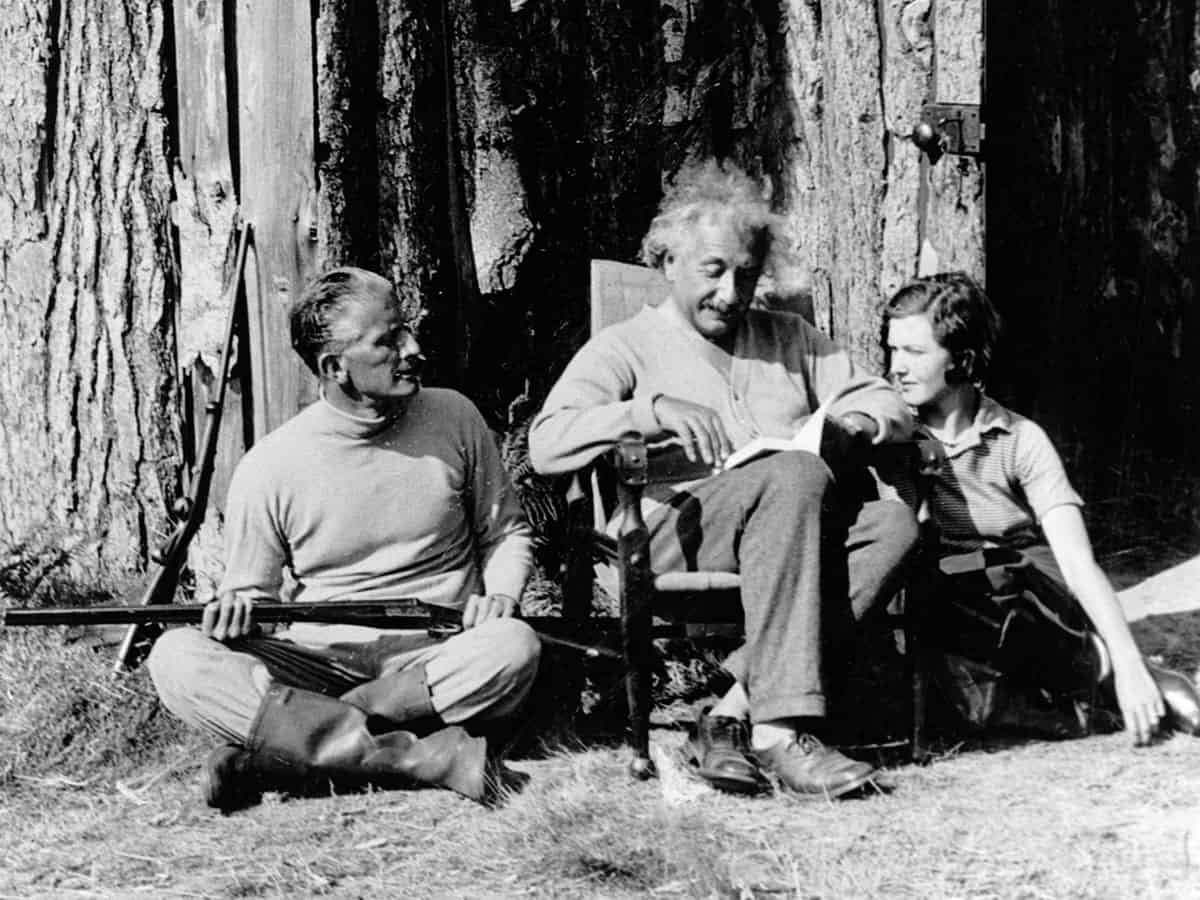Ian Randall reviews Einstein on the Run: How Britain Saved the World’s Greatest Scientist by Andrew Robinson

A trope that has indelibly attached itself to Albert Einstein’s theory of relativity, since its public debut, is that few individuals – save the great physicist himself – are fully able to grasp the science, despite it attracting interest from all quarters. In May 1931, for example, on the occasion of Einstein’s delivery of the Rhodes lectures in Oxford, UK, a local newspaper reporter commented: “It was unfortunate that no interpreter was provided…One wonders how many of those who were present thoroughly understood German, or if they could…how many of them could follow the complexities of relativity.” Indeed, in November 1919 astronomer Arthur Eddington – presented with the suggestion that he must be one of only three individuals in the world to understand general relativity – himself responded wittily that he was hard pushed to “think who the third person is”.
Reading his new book, Einstein on the Run: How Britain Saved the World’s Greatest Scientist, one cannot help but feel that author Andrew Robinson’s panoptic grasp of his world-renowned subject – on whom he has written previously – has by coincidence taken on a somewhat similarly formidable but irresistible appeal.
Robinson, who is also author of Einstein: a Hundred Years of Relativity, has that rare knack for presenting a near-encyclopedic volume of historical information, anecdotes and contemporaneous accounts in a thoroughly delightful fashion. Starting with Einstein’s upbringing in Germany, the book progresses through his presentation of the theory of relativity, to his flight to Belgium, England and eventually the US – weaving along the way a multi-stranded narrative about Einstein’s physics, changing relationship to pacifism, and political circumstances, with a particular focus on his relationship with Britain.
Einstein made a number of trips to England during the period from 1921 to 1933, and his speeches and writings from that time relate a not-inconsiderable affection for the country, the reception it had provided him, and its place in the history of physics – despite his amusement with aspects of English formality such as he observed in the University of Oxford’s “holy brotherhood in tails”.
I was particularly delighted by Robinson’s inclusion of various humorous reference materials from the time. These range from the writings of the pseudonymous Daily Express columnist “Beachcomber” to a relativity-themed rewrite of Lewis Carroll’s “The Walrus and the Carpenter”, and even the following amusing aphorism from writer Sir John Squire, after a poem by Alexander Pope:
“Nature, and Nature’s laws lay hid in night. / God said, Let Newton be! and all was light. / It did not last: the Devil howling ‘Ho! / Let Einstein be!’ restored the status quo.”
Perhaps one of the few criticisms I could level at Einstein on the Run manifests not through the body of the text, but the subtitle, which places the work as a telling of “How Britain saved the world’s greatest scientist”. My fears that this label pointed towards a more parochial take on the physicist were, fortunately, not realized. Instead, one might argue that the work stands as a subtle testament to the values of tolerance, co-operation and internationalism exhibited by many of the book’s key actors – which makes the work feel particularly timely.
Besides the scientific and political contexts of Einstein’s life, however, Robinson’s writing beautifully invokes the free-spirited professor’s playful personality, charm and good humour – rendering the man an endearing subject. Repeated references are made to Einstein’s kindly nature and booming laughter that would, in the words of the British literary critic V S Pritchett, blow away the “exemplary and decorous” atmosphere at Princeton’s Institute for Advanced Study.
Robinson contextualizes Einstein’s character and noted anti-authoritarian streak as a reaction against what he referred to as Zwang – the German word for constraint and compulsion – which he saw as a prevalent negative in the disciplined ethos of his upbringing in Germany. In contrast, the description of the provisions made for Einstein’s protection during his “secret” stay near Cromer, Norfolk, in 1933 capture a quintessentially British scene of quirkiness – with the great mind secured against Nazi assassins and other sinister actors by a gamekeeper, two “beautiful” rifle-bearing secretaries and a former naval officer sat astride a hired milk-cart pony named “Tom”.
In many ways, and quite belying its more active title, Einstein on the Run is a slow burner of a book – the lion’s share of its content passes before it even reaches his flight from the growing Nazi menace that threatened him. The work might almost be viewed as an extensive preamble to the tightly written final chapter, which addresses the question “Why did Einstein choose not to remain in England?”. For many authors, this structure would be fatal, but Robinson’s superb work remains compelling throughout. Whether or not one has successfully plumbed the depths of relativity, the certainty that this work has something for everyone is surely absolute.
- 2019 Yale University Press £16.99hb 376pp



